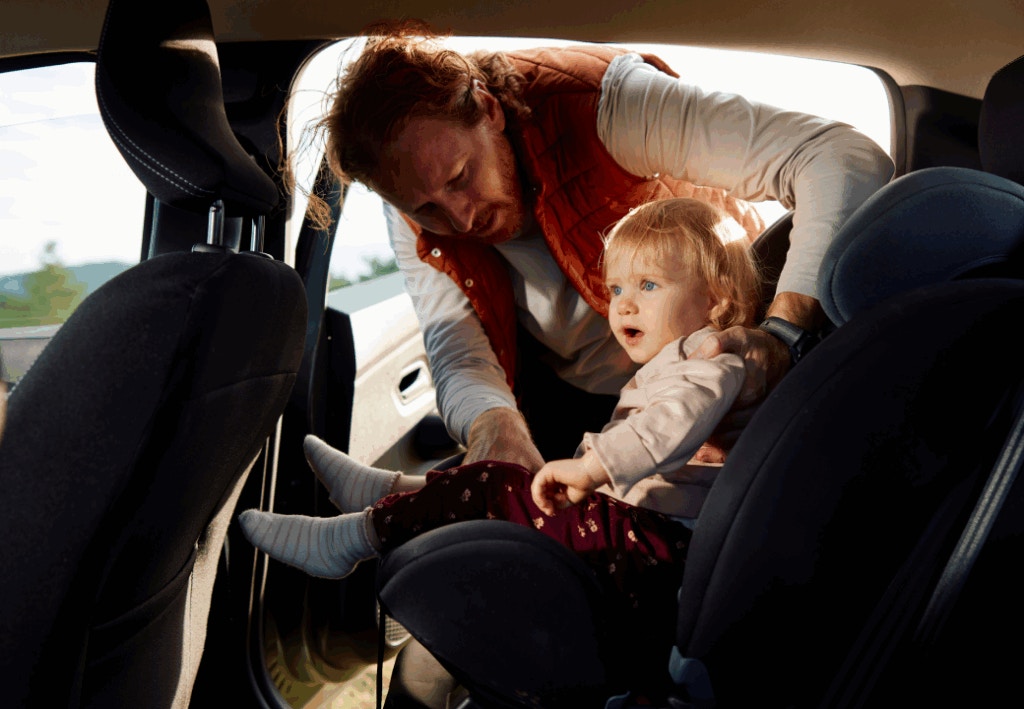What to consider when changing your car

As life changes, so do your driving needs. Maybe you’ve moved somewhere new, your circumstances have shifted, your car’s getting older, or your lease is nearly up. Whatever the reason, there comes a point when upgrading or downgrading just makes sense.
A car is often your second biggest asset after a home, but it’s also one of your biggest ongoing costs. From fuel, tax and insurance to maintenance and repairs, the cost of keeping an old car can creep up without you realising. Getting a free valuation every now and then helps you understand what your car is really worth and whether it still makes sense to keep it.
To help you decide what’s right for you, here are some of the top reasons people choose to change their car, along with practical tips for each scenario.
Changes in location
Moving to the city
If you’re heading into an urban jungle, you might need to rethink your driving situation. With stop-start traffic, tight parking, and ULEZ (Ultra Low Emission Zone)/ CAZ (Clean Air Zone) to think about, a smaller, more efficient car could make your life much easier and cheaper. If your current car isn’t compliant, those daily fees can really add up.
Moving to the countryside
Longer distances and higher-speed roads might mean looking for something more robust and fuel-efficient on motorways. A bigger car, like a 4×4 or SUV, can offer better grip on uneven terrain and more stability in bad weather.

Changes in circumstances
Financial
Changes in income or new financial responsibilities can shift your priorities, and sometimes, there are clear financial reasons to opt for a more economical car. You might want to reduce monthly costs by choosing a car that’s cheaper to run, whether that be your fuel costs, tax or insurance.
However, if your finances improve, you may have the freedom to explore something with more features or a higher spec.
Got a car on finance? You don’t need to wait to sell it. Read our ultimate guide to selling your financed car on Motorway.
Family
Welcoming a little one into your family doesn’t just mean another passenger – it’s the buggy, car seat, bags stuffed with spare clothes, nappies, toys and all the rest. Suddenly, boot space and back-seat access matter a lot more. It might be time to upgrade to something roomier and with strong safety ratings. When you’re comparing models, check the Euro NCAP safety scores to see how each car performs.

Journey
More mileage
Clocking up more miles than you used to? Whether it’s a new job that has you doing laps of the M25 or long car journeys to visit the in-laws, you’ll want a dependable and economical car. Older cars can cost you a lot of money through poor fuel efficiency and potential breakdowns, so if you’re wondering “when to upgrade my car”, switching to something more reliable could save you in the long run… or drive.
Less mileage
Not adding as many miles to the clock? Fuel efficiency may become less of a deciding factor, giving you more freedom to choose based on comfort, style, or performance. You may also decide to look at buying an electric car for your next daily drive. Even if you’re not looking to sell, reach out to your insurance provider to update your estimated annual mileage – getting a recalculated quote could save you money.
Age of your current vehicles
If you’re seeing a mechanic regularly, it might be time to switch your car – especially if the cost of keeping an old car is becoming more and more expensive. Repairs can add up quickly, so sometimes it makes more sense to put that money towards something newer. Our top tip? Value your car – that way you’ll know whether it’s worth fixing or if it’s time to sell.
Reaching the end of your lease
When your lease ends, it’s a natural moment to reassess. Maybe your needs have changed since you first chose the car, or you simply want newer tech and better safety features. You can upgrade to a newer model with more features, or downgrade to reduce monthly costs and running expenses.

FAQs
When does it become more expensive to keep an old car than to buy a newer one?
If you’re spending more each month on repairs and upkeep than you would on a newer car, the cost of keeping an old car may be higher than upgrading, which means it’s probably time to move on. Use our valuation tool to see what your car’s worth, and think about the savings you’d get from better fuel efficiency and lower tax costs.
What should I prioritise when looking for something cheaper: low mileage or low age?
Generally, it’s better to go for a newer car with low mileage and a full service history you can check. Newer models usually mean better safety, newer tech, and less wear and tear overall.
How does a new commute, such as driving in the city centre, influence the decision to switch?
If you’re commuting in London, you might need a ULEZ (Ultra Low Emission Zone) compliant car. For everywhere else, make sure it applies to CAZ (Clean Air Zone) standards. Newer petrol, diesel, or electrified models that meet the standards are exempt from daily emission charges. Smaller, fuel-efficient cars with automatic gearboxes also make city driving much easier.
If I decide to sell, how can I ensure I get the maximum possible value for my current car?
A few simple things that make a big difference: give your car a thorough clean, fix any small scratches or dents, snap some great photos, and make sure you have a complete service history and all your paperwork. Then sell it where you’ll get the best price – with over 7,500 verified dealers bidding, Motorway helps you get top offers.
So whether you’re after something bigger, smaller, cheaper, electric-powered, or just a bit shinier with that new car smell – or curious about your car’s value – getting a free valuation is the best place to start. And when you’ve decided you’re ready to sell, Motorway is here to help you get your best price.
The information provided on this page is for general informational purposes only and should not be considered as professional advice.